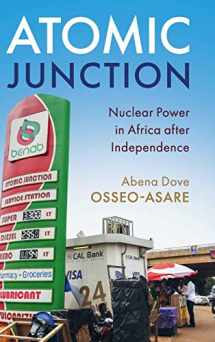
Atomic Junction: Nuclear Power in Africa after Independence
Book details
Summary
Description
After Atomic Junction, along the Haatso-Atomic Road there lies the Ghana Atomic Energy Commission, home to Africa's first nuclear programme after independence. Travelling along this road, Abena Dove Osseo-Asare gathers together stories of conflict and compromise on an African nuclear frontier. She speaks with a generation of African scientists who became captivated with 'the atom' and studied in the Soviet Union to make nuclear physics their own. On Pluton Lane and Gamma Avenue, these scientists displaced quiet farming villages in their bid to establish a scientific metropolis, creating an epicentre for Ghana's nuclear physics community. By placing interviews with town leaders, physicists and local entrepreneurs alongside archival records, Osseo-Asare explores the impact of scientific pursuit on areas surrounding the reactor, focusing on how residents came to interpret activities on these 'Atomic Lands'. This combination of historical research, personal and ethnographic observations shows how Ghanaians now stand at a crossroad, where some push to install more reactors, whilst others merely seek pipe-borne water.


We would LOVE it if you could help us and other readers by reviewing the book
Book review



